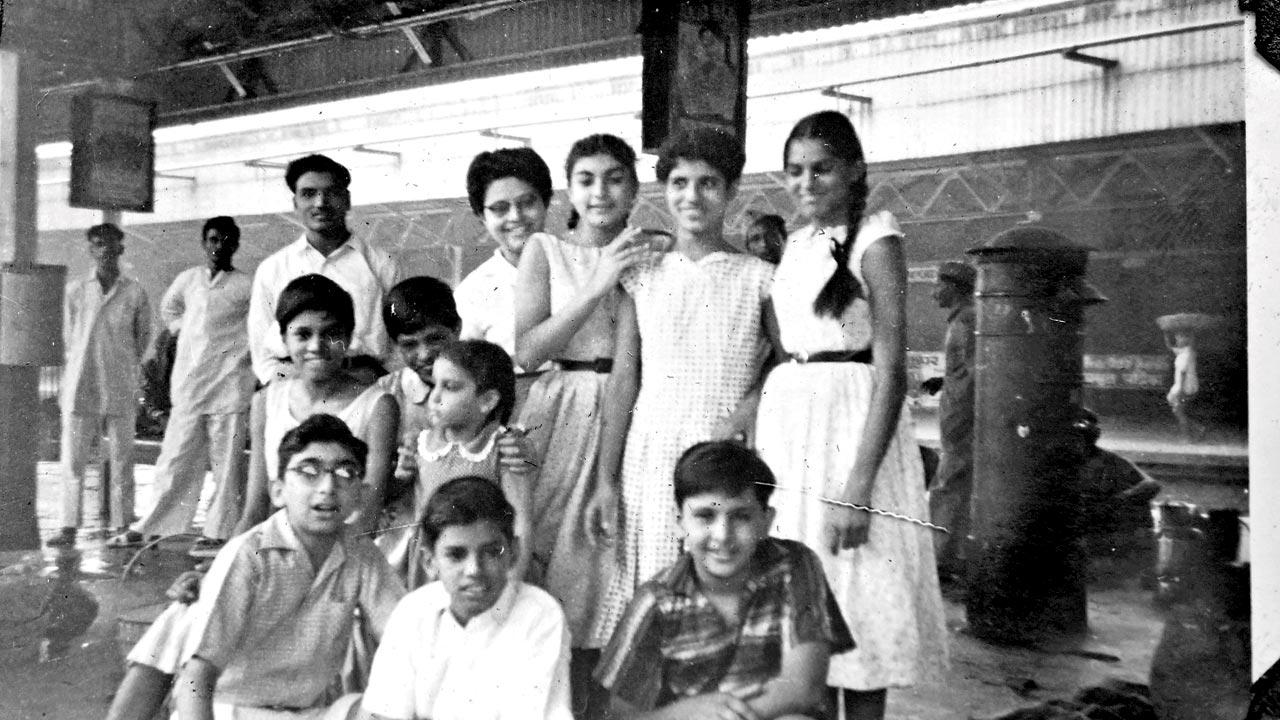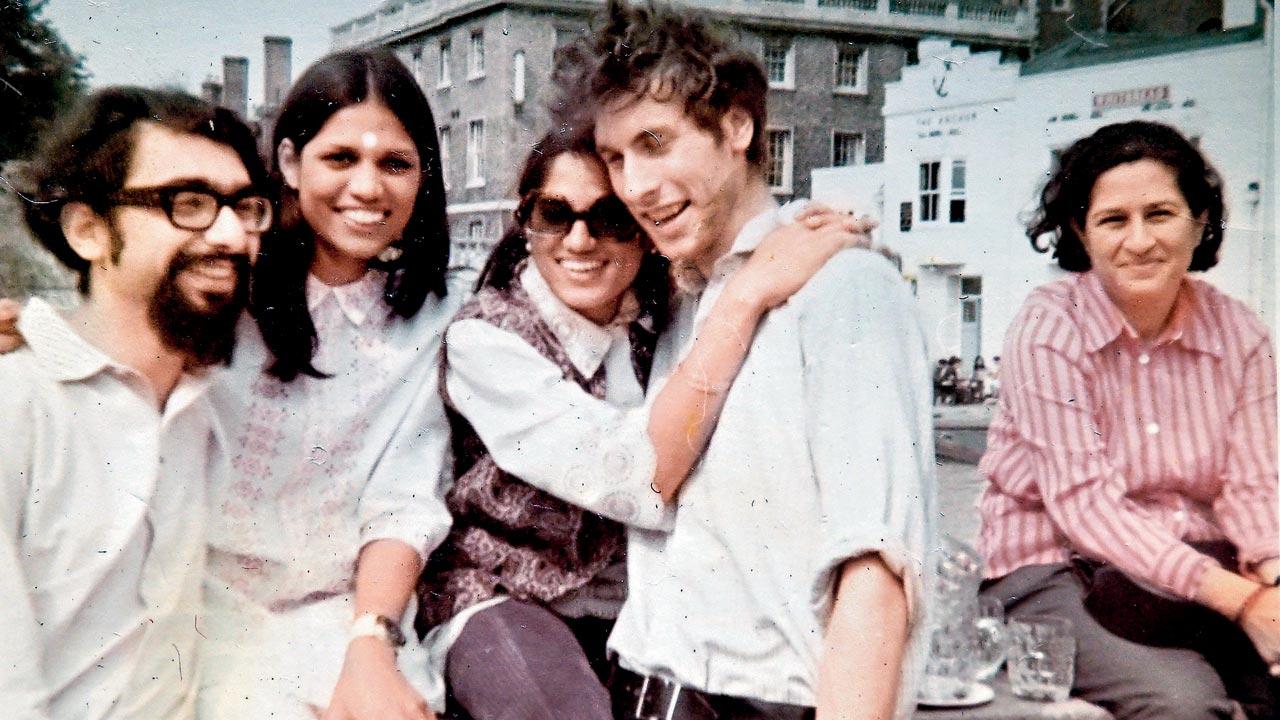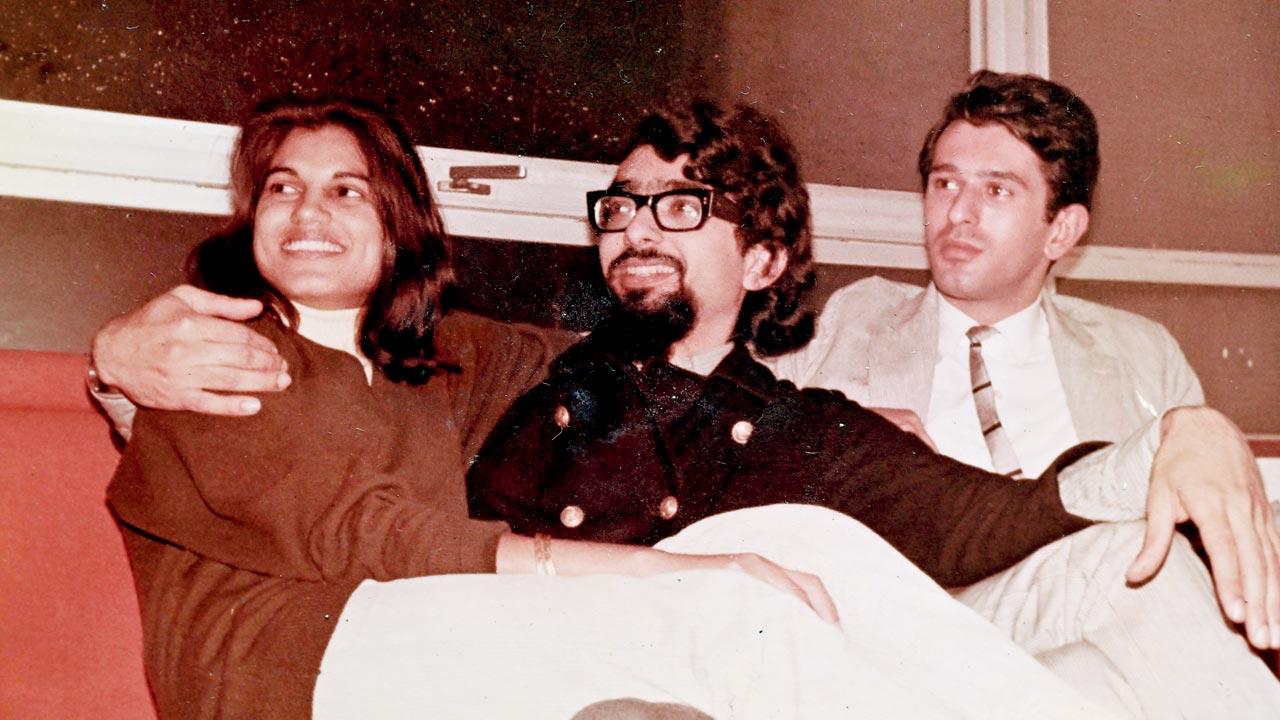Having known each other as 10-year-olds, theatre actor Dolly Thakore and author-activist Farrukh Dhondy declare they are closer than most siblings

Dolly Thakore and Farrukh Dhondy at Thakore’s home
 Dolly Thakore, 81, theatre and media personality
Dolly Thakore, 81, theatre and media personality
ADVERTISEMENT
Farrukh Dhondy, 80, novelist and playwright
Growing up together as summer holiday pals, they nurture their relationship across continents.
Straddling several roles—theatre actor, radio jockey, television newscaster, advertising professional, columnist, casting director for films like Richard Attenborough’s Gandhi—Peshawar-born Dolly Thakore has recently worn the hat of a memoirist, with her autobiography, Regrets, None. She has worked with accomplished ease for institutions including the British Information Service, the British Broadcasting Corporation and Doordarshan.
 Seeing the Poona-bound Dhondys off at Kanpur railway station in 1956; Dolly on extreme right with plaits and Farrukh at extreme left in front row. Pics/Anurag Ahire
Seeing the Poona-bound Dhondys off at Kanpur railway station in 1956; Dolly on extreme right with plaits and Farrukh at extreme left in front row. Pics/Anurag Ahire
Poona-born, Britain-based, Farrukh Dhondy attended Cambridge University, followed by an MA in English and American Literature from Leicester University. He worked as a further education lecturer and school teacher before a celebrated innings as Commissioning Editor, Multicultural Programming, for Channel 4 TV, UK, greenlighting iconic shows like Desmond’s and The Bandung File. His freelance journalism resulted in articles contributed to The Pioneer, Asian Age, India Today and The Economic and Political Weekly.
The friends reconnected this week, with Dhondy here for the 'Literature Live! The Mumbai Litfest’, which featured books by him, including Deccan Queen: Take Two and The Freezies.
• • •
Dolly Thakore: Farrukh is my dear friend since 1956, during our Kanpur days. His father was in the Army stationed in Kanpur and mine, Wing Commander David Rawson, was at the Air Force Station in Chakeri, a town carved out of 20-odd Kanpur villages.
Farrukh Dhondy: We met as military brats, 10 or 11 years old. My Army officer father, Colonel Jamshed Dhondy, and hers in the Air Force were posted in Kanpur.
DT: Farrukh (I called him Froggy) and his sister Zarine—Zsazsa to us—invaded Kanpur to spend summer holidays with their parents. We were a rather conservative Forces family, disciplined in parental and small-town guidelines. The smart Poona Pack duo from Wadia College and 599 Sachapir Street introduced us to rock ‘n’ roll, the cha cha, Be-Bop-a-Lula, jiving, “mixed parties” socialising and entertainment. They knew the good songs, the new ones.
 In Cambridge, 1966: Farrukh, Dolly’s sister Pam, Dolly, John Snow and Farrukh’s aunt
In Cambridge, 1966: Farrukh, Dolly’s sister Pam, Dolly, John Snow and Farrukh’s aunt
FD: We ate, slept and played together. Through our constant presence in each other’s company, the Rawsons and the Dhondys knew each other’s parents well. I was in Kanpur every school holiday.
DT: In those five-six weeks, there wasn’t a day we didn’t spend together. With kids of another Parsi clan, the Khorys, we’d lie on mattresses spread in front rooms or on verandahs in each other’s homes.
FD: We were like sisters and brothers, though one of the Khory girls and I developed a sort of passion for each other. Dolly and the rest knew it and encouraged the liaison.
DT: Froggy was the renaissance awakening in my life. That was a great deal of intellectual stimulation for me, exposure to a totally different culture—hearing words like Marxism and bourgeoisie, absorbing the influence of academia. Froggy had me hooked.
 Dolly on the steps of her Chelsea Manor Gardens home
Dolly on the steps of her Chelsea Manor Gardens home
FD: In Kanpur, we walked the main Mall Road and met in the grounds of Belle Vue Hotel. Not a dull moment, with the latest records of Little Richard, Bill Haley….
DT: Amidst all this singing and dancing was knock-kneed, thick specs-wearing, Shakespeare and Keats-spouting Froggy. My concentration shifted from buckram petticoats and fashion skirts to literature and poetry and reading—though still partial to romance serials in weekly borrowed Women and Home issues from Air Force libraries! Once school ended, college and careers took priority. Mind-blowingly impressive, after his BSc from Poona University, Farrukh went to hallowed Cambridge. I completed a BA in Christ Church College, Kanpur, then onwards to Miranda House, Delhi, where I was the stage lead in The Rape of the Belt, with Amitabh Bachchan as my co-actor from Kirori Mal College.
 With their friend Farshin Bharucha
With their friend Farshin Bharucha
FD: After we both graduated, we met in London. I was at Cambridge and Dolly worked for the BBC. We translated broadcast material together, meeting often. In England, we continued as confidante siblings and experienced everything from Pink Floyd’s debut album, The Piper at the Gates of Dawn, to the May Balls of Cambridge. We were a gang, with Adil Jussawalla and Farshid Bharucha, among others.
DT: They collected in my home, where I cooked these hulking guys kheema aloo and mutton pulao. There was, of course, Mala Sen, who married Froggy. We witnessed great political awareness, mainly the British New Left of the 1960s. We participated in Tariq Ali’s first demonstration against the Vietnam war. Linking arms at Charing Cross, we chanted, “We shall fight/We shall win/Ho Ho Ho/Ho Chi Minh.”
FD: Visiting Dolly after she moved to Mumbai, I would stay in her flat. She’s a fantastic, generous hostess. I inevitably gather my friends at her place. She has talent, sharpness of mind, is caring and a person of vast acquaintance—which she’s willing to share. It bewilders me that whoever you mention, Dolly knows.
DT: He asks me if he wants to know about people that he’s lost touch with. Froggy was here with me three times a year when he headed Channel 4 TV. I don’t ever feel he isn’t a Bombay boy.
FD: We’ve worked, laughed, empathised together. There has never been a crisis point between us. Discussions, yes. But no time for disputes in our short and happy lives. I hope she reads my books.
DT: Just look at my shelves full of his titles.
FD: I’m as interested in her role as a casting director and actor, and watch plays she is in. As a commissioning editor for Channel 4 TV, I sent any producer who needed help with Indian casting or other assistance to Dolly. The kind of friendship we shared was, and is, extremely instrumental to my personality. I’ve always regarded Dolly as a close sibling.
DT: Closer than most brothers and sisters. He is the keeper of my secrets. It’s also lovely how all his five children accept our enduring relationship.
FD: I like to think that she might have admired my rational, logical approach to the world. I may have convinced her not to waste emotional energy on the past, however deeply it hurts or affects one. Let it go!
Author-publisher Meher Marfatia writes monthly on city friendships. You can reach her at [email protected]/www.meher marfatia.com
 Subscribe today by clicking the link and stay updated with the latest news!" Click here!
Subscribe today by clicking the link and stay updated with the latest news!" Click here!







